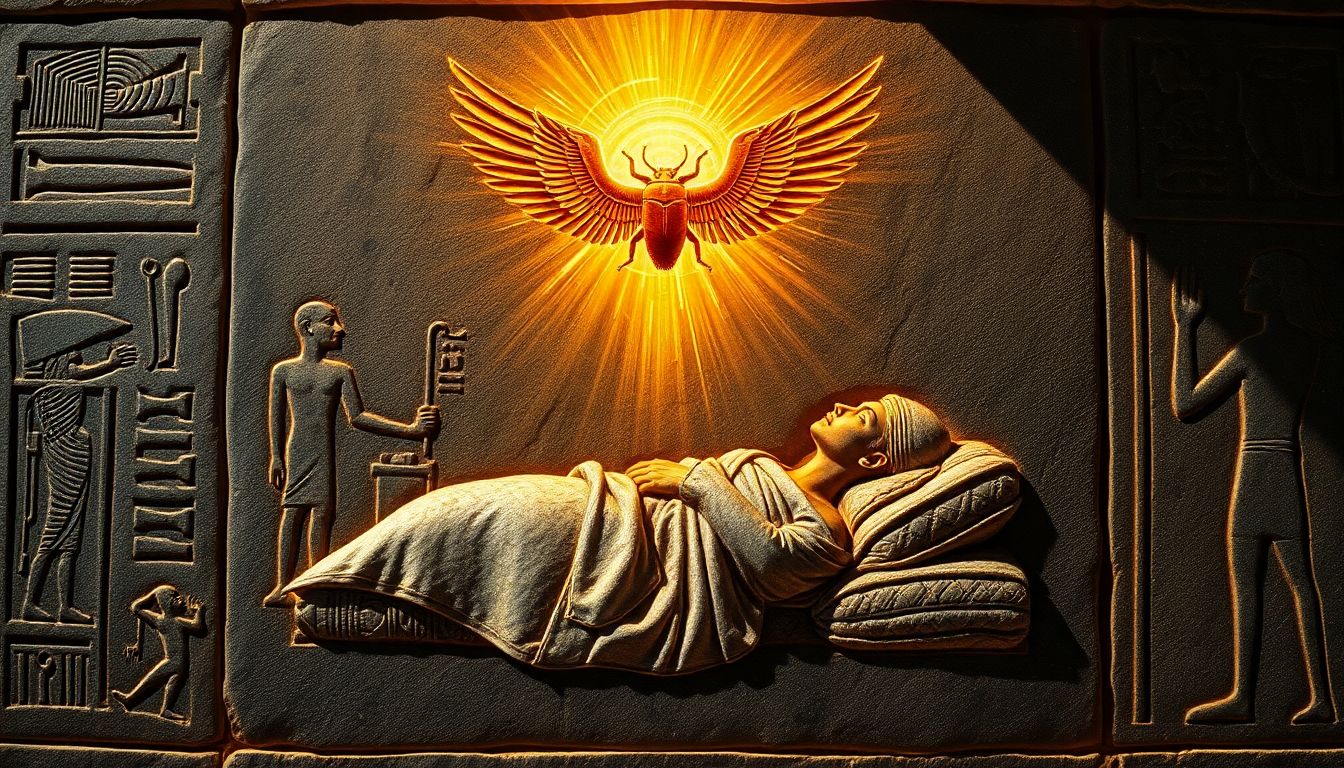Dreams have long held a special place in human history, and for the ancient Egyptians, they were more than fleeting images during sleep—they were messages from the divine. Dreams were seen as a bridge between the mortal world and the gods, offering insights, warnings, and guidance. Understanding their dream symbols was an essential part of Egyptian spiritual life.
In this article, we’ll explore the fascinating world of ancient Egyptian beliefs about dreams and what they might mean for you.
The Role of Dreams in Ancient Egyptian Culture
In ancient Egypt, dreams were believed to be a form of communication with the gods. Egyptians thought the dream world was a sacred realm where messages about the future, personal challenges, or divine will could be revealed. Pharaohs, priests, and ordinary people alike turned to dream interpreters for guidance.
Dreams and the Divine
Certain gods were associated with dreams:
- Thoth: The god of wisdom, writing, and knowledge, was believed to help interpret dreams.
- Bes: The protector god, often appeared in dreams to ward off evil spirits or bad omens.
- Isis: The goddess of healing and magic, could send dreams to provide comfort or insight.
Ancient Egyptian Dream Symbols and Their Meanings
1. Snakes
- Meaning: A snake in a dream was often seen as a sign of protection or healing, but it could also symbolize hidden danger.
- Spiritual Insight: It might indicate transformation or the need to confront fears.
2. Pyramids
- Meaning: Dreaming of pyramids was considered a powerful symbol of eternal life, strength, and divine connection.
- Spiritual Insight: It suggests spiritual growth or a reminder to connect with your higher purpose.
3. Water
- Meaning: Calm water represented peace and emotional clarity, while turbulent water symbolized chaos or emotional struggles.
- Spiritual Insight: Water dreams might signal the need for emotional healing or reflection.
4. The Sun
- Meaning: The sun was a symbol of creation, renewal, and divine presence.
- Spiritual Insight: A dream of the sun could signify enlightenment or the beginning of a new phase.
5. Cats
- Meaning: Cats were sacred animals in ancient Egypt, representing protection, intuition, and mystery.
- Spiritual Insight: Dreaming of a cat might suggest the need to trust your instincts or seek protection from harm.
Types of Dreams According to Ancient Egyptian Beliefs
1. Prophetic Dreams
These were considered messages from the gods, offering warnings or predictions about future events. For example, a dream about flooding might indicate abundance or disaster, depending on the context.
2. Healing Dreams
The Egyptians believed certain dreams could provide instructions for healing or reveal the cause of an illness. Temples dedicated to healing, known as Houses of Life, often served as spaces for dream incubation.
3. Symbolic Dreams
These dreams used imagery and metaphors to convey spiritual lessons or life advice. Deciphering the symbols was crucial to understanding their true meaning.
How to Interpret Your Dreams Like the Ancient Egyptians
1. Record Your Dreams
Keep a dream journal and note any symbols, emotions, or recurring themes. Ancient Egyptians placed great importance on analyzing patterns in dreams.
2. Reflect on Your Current Life
Consider how the dream’s symbols relate to your waking life. Are you facing challenges, seeking guidance, or exploring new opportunities?
3. Seek Spiritual Guidance
For the Egyptians, dream interpretation was a sacred practice often guided by priests or spiritual leaders.
Conclusion
Dreams were a vital part of ancient Egyptian spirituality, offering insights into the divine and the self. Whether you dream of cats, pyramids, or the sun, these symbols carry messages that could guide your emotions, decisions, and spiritual growth.
Want to know if your dream holds a positive message or a hidden warning? Get a free one-card tarot reading to uncover its hidden meaning.

👇One Card Tarot Reading👇
If you're interested, you can try a free online one-card tarot reading. This simple yet insightful tarot draw can help you gain a glimpse into whether your upcoming experiences might lean toward the positive or the negative. Ready to discover what the cards hold for you? 🌟
Draw a card nowDreams spark connection and insight. Share!